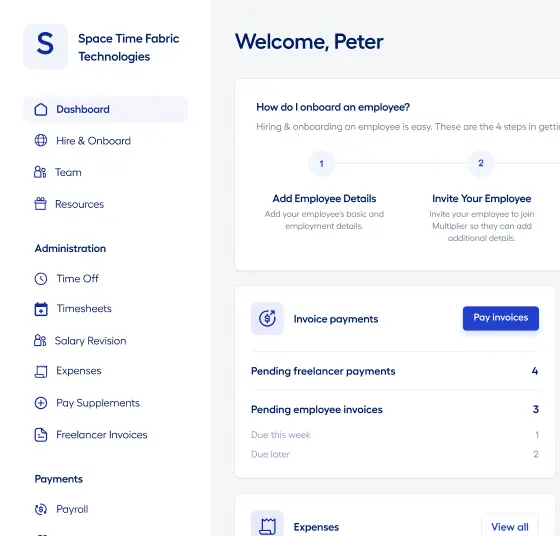In the 21st century, business is booming, but just as business is on the incline, the amount of skilled workers to fill these job roles is very much on the decline. Korn Ferry’s study ‘Future of Work: The Global Talent Crunch’ predicts that by 2030 a serious shortage of workers is highly likely. And with a global talent crunch looming, businesses need to gear up for the coming years.
But what is the global talent crunch? And how is it possible that the demand for workers exceeds the supply? We explore these questions, and more, in the following article.
What is the talent crunch?
To put it simply, the talent crunch, or the global talent crunch, details the shortage of skilled workers worldwide. Numerous industries across the globe, such as the tech sector, have been impacted massively by the talent crunch. And many companies are feeling the pinch as they pick from a smaller pool of workers than they have done in previous years.
As demand for workers in certain fields has increased, especially those sectors that require specific qualifications and knowledge, the supply is just not there to support it. According to a recent study by Korn Ferry, the way things are going, by 2030, the number of unfilled jobs may reach 85.2 million. That is a staggering statistic and a major shortage of global talent.
What are the causes of the talent crunch?
There are several causes of the global talent shortage; these include aging populations, gaps in skills and training, technological advancements, and worker migration. But how exactly have these impacted the talent crunch? Find out more about how factors such as these have caused a talent shortage in the following sections.
Aging populations
People are living longer and having fewer children, and while this is not necessarily a negative, it has contributed to the talent crunch. With older workers retiring and very few workers left to replace them, industries are struggling to fill job roles.
Training and skill gaps
Many job seekers lack the skills, training, and qualifications that certain industries require — but this is not entirely their fault. With education systems proving to be lacking in many countries, people are just not receiving the training they need to fill the multitude of empty roles. With companies rushing to fill job positions, those with either an incorrect or limited skill set are finding themselves in roles they are generally underqualified for. Leading to even more issues for companies going forward.
Advancements in technology
Although innovation in tech is undoubtedly impressive, there seems to be an issue of finding workers who actually understand the new tech, much less with the capacity to operate them. With technological advancements increasing rapidly, expertise and knowledge are falling behind.
Worker migration
More and more workers are moving abroad, either for better working conditions, opportunities, or higher pay. This means that countries all over the world are picking job candidates from the same small pool of candidates, which seems to be contributing to the global talent crunch.
Which sectors will be impacted the most by the talent crunch?
The next few sections will take a look at the industries and sectors that will be most affected by the global talent crunch in the coming years.
Finance and business
The talent shortage is prevalent in the finance and business sectors. According to Korn Ferry’s study, the US is taking the brunt of the impact within this sector with a not-so-impressive $435.69 billion in projected unrealized economic output. The business and finance sectors will likely feel a loss of 10.7 million workers in the next 7 years, which is no small feat.
Manufacturing
The manufacturing industry, as specified by Korn Ferry, is next up on the list of sectors most impacted by the global talent crunch. Within 7 years, this industry alone could be looking at a loss of 7.9 million workers. Countries such as China, with Thailand not far behind, will suffer greatly from the shortage of workers, and their manufacturing output will surely suffer as well.
Technology, telecommunications, and media
Next up is the technology sector. Korn Ferry is predicting a tech talent shortage of 4.3 million by 2030. Once again, as the leader of the tech market, the US seems to be hit the hardest in Korn Ferry’s statistics. The expected tech talent shortage will not only hinder innovation but will undoubtedly put many companies in a difficult situation.
What are the financial impacts of the talent crunch?
Broadly speaking, the global talent crunch has had a large impact on the outgoings of individual companies and businesses, as well as the global economy as a whole. But where can companies expect to see their losses coming from? Outlined below are a few of the answers:
- Productivity reductions: The fewer job roles that are filled, the lower the output of work. This results in less profit and a decrease in financial gain.
- Investing in training: The talent that industries do acquire may be underqualified, and this means training costs per employee hired will increase. Depending on the industry, and level of training, this can prove expensive.
- The cost of attracting and retaining talent: A shortage of workers means that companies are upping their salary brackets in the hopes of attracting the skilled employees they require. Thus, a higher cost for every worker hired. Businesses are also finding themselves paying more to retain the talent they already have.
- Hiring overseas employees: Many businesses are looking further afield for staff to fill their shortage, and with many companies being partially or fully remote — it’s a great solution. However, with global employment comes financial risks of its own, and companies may face fines or legal fees. However, this can all be avoided with platforms such as Multiplier.
A light at the end of the tunnel
The unfortunate truth is that a dwindling workforce can impact the economy, productivity, and innovation. Which admittedly doesn’t sound good; however, all hope is not lost.
It’s not all doom and gloom, and businesses can be proactive and prepare in a few different ways:
- Education and training improvements: Businesses can reach out to institutions in order to update education surrounding their industry. It is also possible to build partnerships and to even use apprenticeship schemes to funnel skilled workers into various companies.
- Workforce investments: Businesses can set themselves up for a better future by upskilling their current workforce for future management positions, as well as investing in wider training for the whole team. Ultimately providing them with all of the talent they need.
- Remove barriers and increase flexibility: Retaining and attracting talent sometimes means flexibility. This may mean offering hybrid or remote working schemes or removing barriers to entry-level jobs. The bonus of a remote workforce is that expanding globally is a real possibility, largening the pool of skilled workers to choose from.
- Foster a diverse culture: Inclusivity and diversity are key to fostering a great business culture. Current employees, as well as new ones, will appreciate the inclusive nature. And this can help to bring in new talent, especially talent from groups that may have been otherwise underrepresented.
How can Multiplier help?
With Multiplier, you can expand your team globally to attract and retain the best talent. Minimize the risks that come with hiring from overseas, and opt for a platform that provides ultimate global compliance.
With Multiplier by your side, you can manage your international workforce in the ways that count, and we will take care of everything else. Offer global benefits your employees will love, and keep your staff for years to come.
If this sounds like something you would be interested in, why not get started and book a Multiplier demo today?







